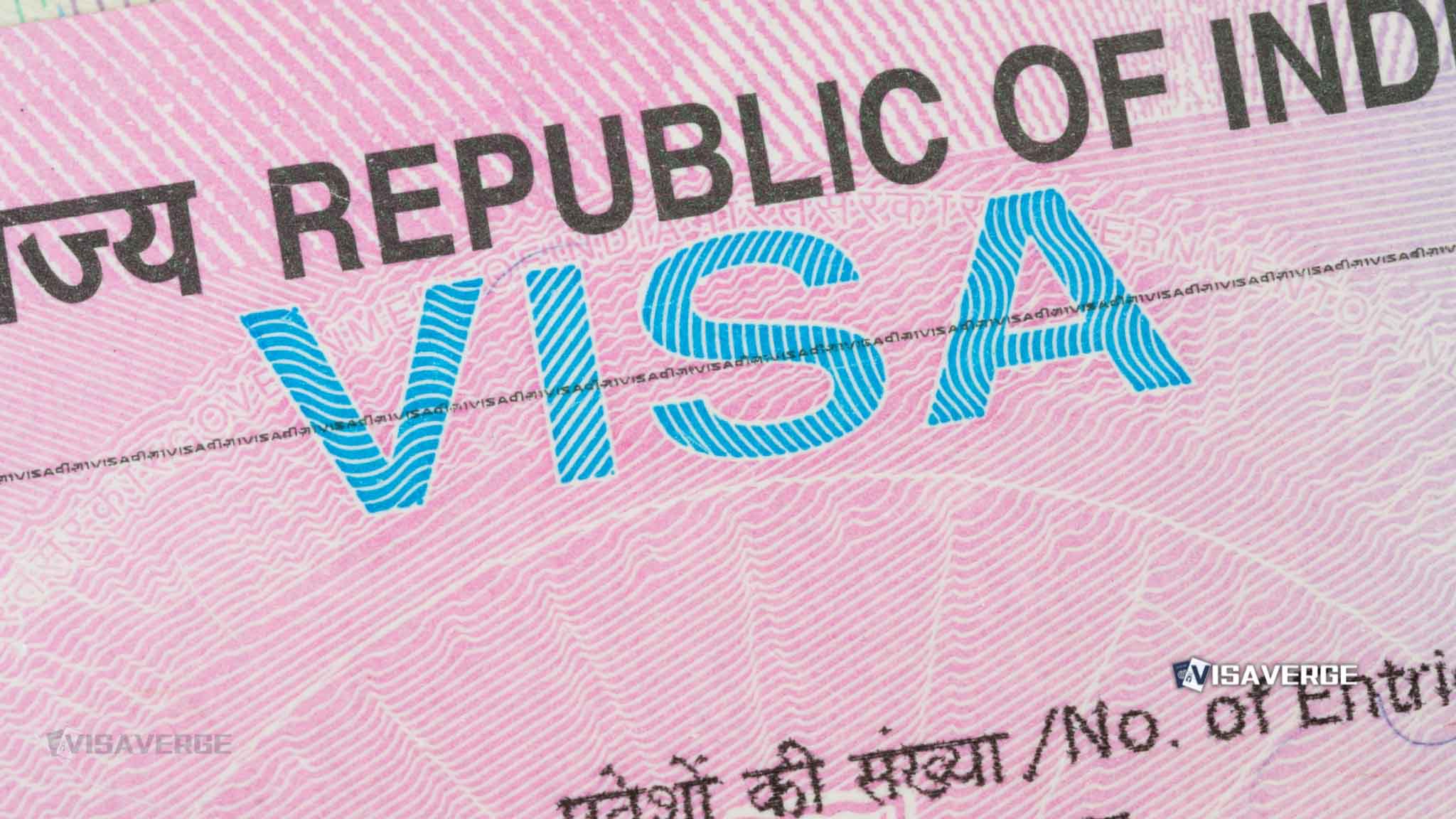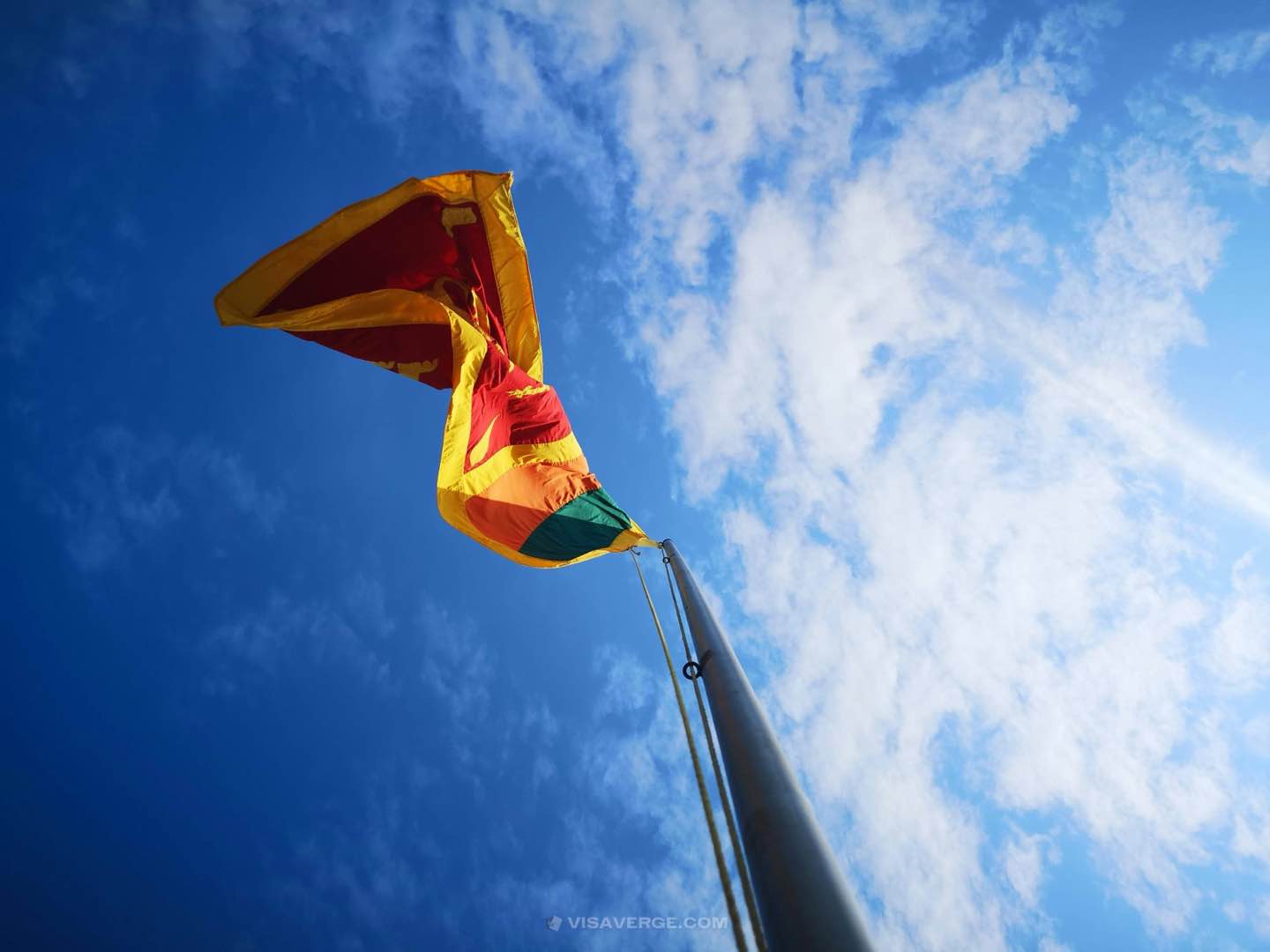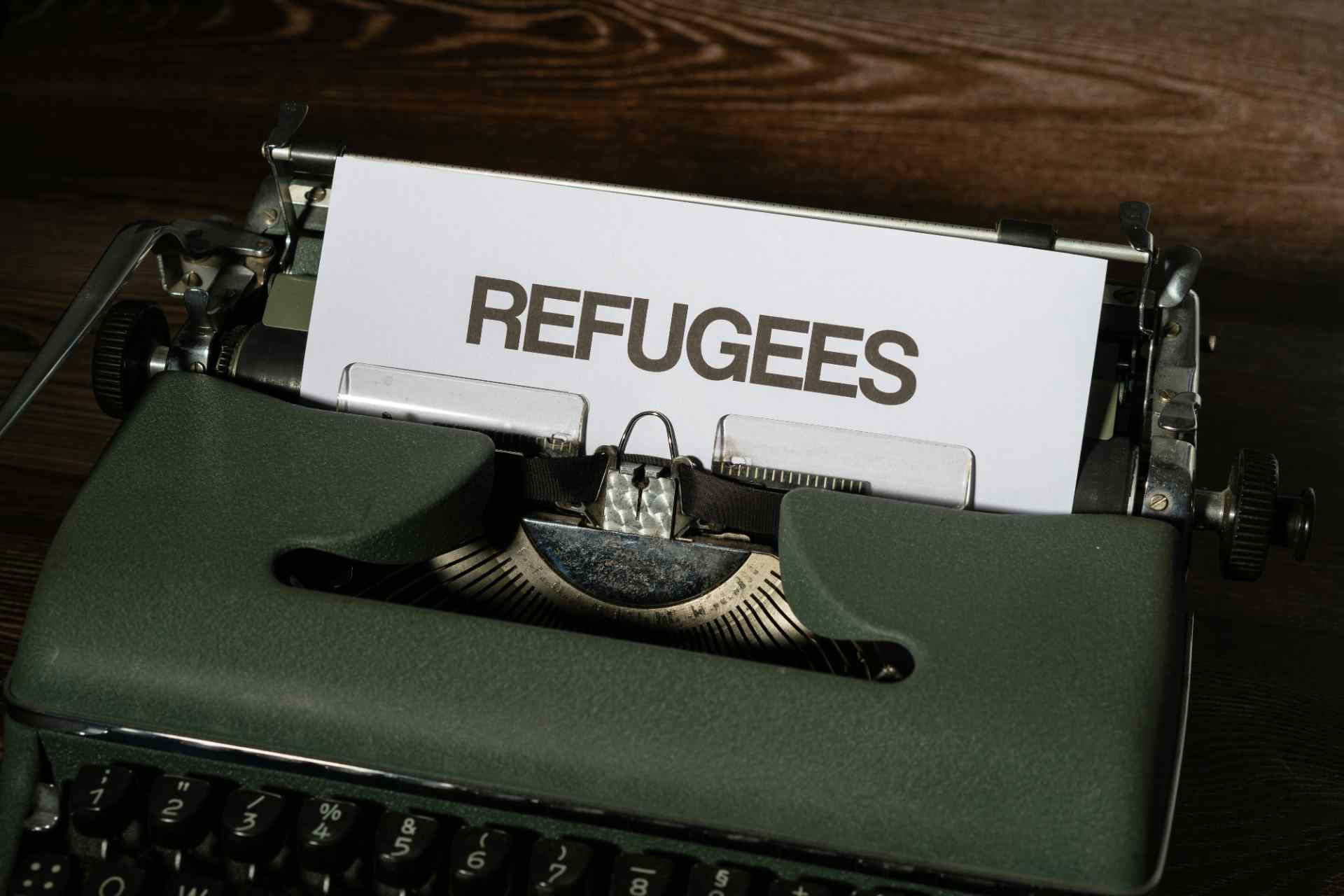Key Takeaways
• IIT Guwahati graduate received F-1 visa approval in 30 seconds on June 23, 2025.
• Strong academics, clear plans, and full NYU scholarship enabled fast visa approval.
• F-1 visa process improved with faster interviews and partial interview waivers in 2025.
A recent event has caught the attention of students, educators, and immigration experts worldwide: an Indian Institute of Technology (IIT) Guwahati graduate, holding an MTech in Biotechnology with a CGPA of 9.04, received approval for his F-1 visa in just 30 seconds during a visa interview on June 23, 2025. This approval allows him to attend New York University (NYU) on a full scholarship. The speed and ease of this approval stand out, especially when compared to the usual wait times and steps involved in the U.S. student visa process. This story highlights how strong academic records, clear study plans, and verified scholarships can sometimes lead to faster visa decisions.
Let’s look at what happened, why it matters, and what it means for students, universities, and the broader immigration system.

What Happened: The 30-Second F-1 Visa Approval
On June 23, 2025, at 10 AM, a graduate from IIT Guwahati attended his F-1 visa interview at a U.S. consulate. He had already been accepted to New York University with a full scholarship. During the interview, the consular officer approved his F-1 visa almost instantly—within 30 seconds. This quick decision is unusual, as most visa interviews take longer and often involve more questions and document checks.
Why was this case different?
The student’s strong academic background, high CGPA, and full scholarship from a top U.S. university likely made his case very clear. The consular officer could quickly see that he met all requirements and had a genuine reason to study in the United States 🇺🇸.
Why This Matters: The Bigger Picture
This case is important for several reasons:
- It shows that U.S. consular officers can approve visas very quickly for highly qualified students.
- It highlights the value of strong academic records and clear documentation.
- It may encourage more top students to apply to U.S. universities, knowing that the process can be efficient for well-prepared candidates.
However, it’s important to remember that most applicants still go through the standard process, which usually takes longer and involves more steps.
Understanding the F-1 Visa
The F-1 visa is the main type of visa for international students who want to study full-time at a U.S. school, college, or university. It is a nonimmigrant visa, which means it is for people who plan to return to their home country after finishing their studies.
Key facts about the F-1 visa:
- Who can apply? Anyone accepted by a U.S. school that is approved by the Student and Exchange Visitor Program (SEVP).
- What does it allow? Full-time study in the United States 🇺🇸, with some options for limited work on campus or through special programs.
- How long is it valid? For the length of the study program, as shown on the Form I-20, plus a short grace period after finishing.
For more details about the F-1 visa, you can visit the U.S. Department of State’s official visa information page.
The Typical F-1 Visa Process: Step by Step
While the IIT Guwahati graduate’s case was unusually fast, most students follow these steps to get an F-1 visa:
- Get Admission and Form I-20:
First, the student must be accepted by a U.S. school. The school then sends Form I-20, which is a certificate of eligibility for nonimmigrant student status.
Form I-20 information - Pay the SEVIS I-901 Fee:
The student pays a fee to the Student and Exchange Visitor Information System (SEVIS). This fee helps the U.S. government keep track of international students.
SEVIS I-901 Fee Payment -
Complete the DS-160 Form:
The student fills out the DS-160 online application form, which is required for all nonimmigrant visas. -
Schedule a Visa Interview:
The student books an appointment at a U.S. embassy or consulate. Wait times for interviews can vary by location and season. -
Prepare Documents:
The student gathers all required documents, including:- Valid passport
- Form I-20
- DS-160 confirmation page
- SEVIS fee receipt
- Proof of financial support
- Academic records (transcripts, diplomas)
- Scholarship letters (if any)
- Attend the Interview:
At the interview, the consular officer asks questions to check if the student is eligible for the F-1 visa. The officer may approve the visa right away or ask for more information. -
Visa Issuance:
If approved, the student’s passport is returned with the F-1 visa stamped inside.
In the IIT Guwahati graduate’s case, the interview and approval took only 30 seconds, showing how clear and strong documentation can speed up the process.
Current Trends in F-1 Visa Processing
Steady Approval Rates:
According to monthly data from the U.S. Department of State, the number of F-1 visas issued in 2025 remains strong. There have been no major policy changes that would make it harder for students to get visas.
Improved Wait Times:
After delays caused by the COVID-19 pandemic, most U.S. consulates have improved their appointment systems. Many students can now get interview slots within weeks or even days, depending on the location.
Interview Waivers:
Some consulates offer interview waivers for certain applicants, such as those renewing visas or those who meet specific criteria. This can make the process even faster for eligible students.
Stable Processing for Related Benefits:
The U.S. Citizenship and Immigration Services (USCIS) handles other student-related requests, such as work authorization (OPT). Processing times for these benefits have also remained steady, with no major delays reported.
Why Some Applicants Get Faster Approvals
Academic Excellence:
Graduates from top institutions like IIT Guwahati often have an easier time during the visa process. U.S. consular officers recognize the reputation of these schools and may feel more confident about the applicant’s intentions.
Clear Study Plans:
Applicants who can clearly explain why they want to study in the United States 🇺🇸, what they plan to study, and how it fits into their career goals are more likely to get quick approvals.
Verified Scholarships:
A full scholarship from a respected university like New York University shows that the student is valued and has strong support. This can make the consular officer’s decision easier.
Complete Documentation:
Having all required documents ready and organized helps the interview go smoothly. Missing or unclear documents can cause delays.
Consular Discretion:
Consular officers have the power to approve or deny visas based on their judgment. If they are satisfied with the applicant’s answers and documents, they can approve the visa quickly.
What This Means for Students and Universities
For Students:
– High-achieving students may experience faster visa approvals, especially if they have strong academic records and scholarships.
– Most students should still prepare for the standard process, which can take longer and may involve more questions.
– Being well-prepared with documents and clear answers can help speed up the process.
For Universities:
– Top U.S. universities like New York University benefit from attracting talented international students.
– Offering scholarships and strong support can help students succeed in the visa process.
– Universities often provide guidance on visa applications, helping students avoid common mistakes.
For Consular Officers:
– Officers can use their judgment to approve clear-cut cases quickly, saving time for both the applicant and the consulate.
– They must still follow security and eligibility rules to protect the integrity of the visa system.
The Role of IITs and Other Top Institutions
Indian Institutes of Technology (IITs) are known worldwide for their high academic standards. Graduates from IIT Guwahati and other IITs often have strong records, making them attractive to U.S. universities and consular officers.
Why does this matter?
– IIT graduates are seen as serious students with clear goals.
– Their degrees are recognized and respected, which can help during the visa interview.
– This reputation can sometimes lead to faster and smoother visa approvals.
The F-1 Visa in Historical Context
The F-1 visa program has helped millions of international students study in the United States 🇺🇸 for decades. Indian students are one of the largest groups of F-1 visa holders. Over the years, the process has changed to meet new challenges, such as security concerns and global health crises.
Recent improvements include:
– Better appointment systems at consulates
– More options for interview waivers
– Faster processing times as staffing increases
These changes make it easier for students to start their studies on time.
Expert Opinions and Analysis
Immigration experts agree that while rapid approvals like the IIT Guwahati graduate’s case are rare, they are possible for candidates with outstanding profiles. As reported by VisaVerge.com, consular officers have the authority to make quick decisions when an applicant’s intent and qualifications are clear and easy to verify.
However, experts also warn that most applicants should not expect such fast approvals. It is still important to prepare carefully, bring all required documents, and be ready to answer questions about study plans and future goals.
Policy Implications and Future Outlook
What could change in the future?
– Consulates may continue to improve processing times as they hire more staff and use better technology.
– There may be more support for high-achieving students, such as faster appointments or special programs.
– Universities may offer more scholarships to attract top international students, making it easier for them to get visas.
What should students do?
– Apply early to both universities and for visas.
– Keep all documents organized and up to date.
– Seek help from university advisors or official sources if unsure about any part of the process.
Practical Guidance for F-1 Visa Applicants
If you are planning to apply for an F-1 visa, here are some steps you can take to improve your chances:
- Maintain strong academic records.
- Apply to well-known and accredited U.S. schools.
- Secure scholarships or financial support if possible.
- Prepare all documents carefully and double-check for accuracy.
- Practice answering questions about your study plans and future goals.
- Arrive early for your interview and stay calm.
For official information and updates, always check the U.S. Department of State’s visa page.
Conclusion: Lessons from the IIT Guwahati Graduate’s Success
The story of the IIT Guwahati graduate who received his F-1 visa in just 30 seconds shows what is possible when a student has a strong academic background, a clear study plan, and full support from a top university like New York University. While most students will still go through the standard process, this case offers hope and motivation for those who work hard and prepare well.
The F-1 visa remains a key pathway for international students to study in the United States 🇺🇸. With ongoing improvements in processing and support from universities, the future looks bright for talented students around the world.
Remember, every case is unique. While some may experience quick approvals, others may face more questions or longer wait times. The best approach is to be well-prepared, stay informed, and seek help when needed.
By following these steps and learning from successful cases, students can improve their chances of joining top U.S. universities and achieving their academic dreams.
Learn Today
F-1 Visa → Nonimmigrant visa allowing international students to study full-time at U.S. schools.
IIT Guwahati → Indian Institute of Technology in Guwahati, known for high academic standards.
Form I-20 → Document issued by U.S. schools certifying eligibility for student visa status.
SEVIS → Student and Exchange Visitor Information System tracking international students in the U.S.
Interview Waiver → Consular decision allowing some visa applicants to skip the in-person interview.
This Article in a Nutshell
An IIT Guwahati graduate’s F-1 visa approval in just 30 seconds reveals faster visa outcomes for well-prepared students, highlighting strong academics, scholarships, and clearer U.S. consulate processes improving international student experiences.
— By VisaVerge.com







